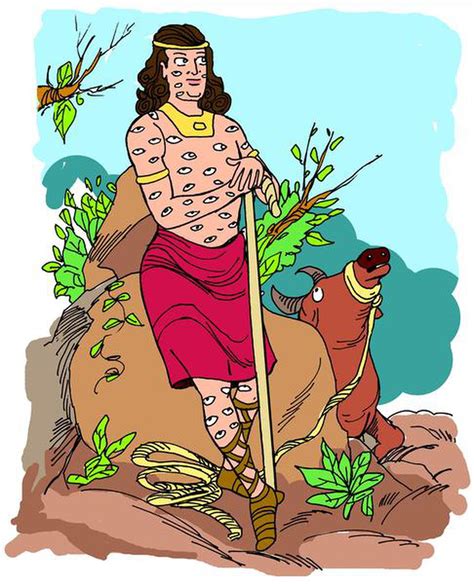hermes argus | sentinel mythology hermes argus Argus or Argos Panoptes (Ancient Greek: Ἄργος Πανόπτης, "All-seeing Argos") is a many-eyed giant in Greek mythology. See more Eau De Parfum 35ml. Product Description. The very definition of elegance according to Mademoiselle Chanel. Charismatic and natural. A floral-fresh-ambery fragrance in six facets that finds an expression unique to each woman. Because every woman has her own special allure. Fragrance Family: Light Floral. Gender: Female. Delivery Options.
0 · what does argus symbolize
1 · sentinel mythology
2 · how did Argos die
3 · greek mythology peacock
4 · argo in greek mythology
5 · Hermes and argus story
6 · Hermes and argus mythology
7 · 100 eyed monster greek mythology
The sparkling freshness of Italian Mandarin, heightened by a Crystalline Accord, .
Argus Panoptes (Ἄργος Πανόπτης) was the guardian of the heifer-nymph Io and the son of Arestor. According to Asclepiades, Argus Panoptes was a son of Inachus, and according to Cercops he was a son of Argus and Ismene, daughter of Asopus. Acusilaus says that he was earth-born (authochthon), . See more

Argus or Argos Panoptes (Ancient Greek: Ἄργος Πανόπτης, "All-seeing Argos") is a many-eyed giant in Greek mythology. See moreArgus Panoptes is referenced in the scientific names of at least eight animals, each of which bears a pattern of eye spots: reptiles Cnemaspis argus, Eremias argus See more• Ancient Greece portal• Myths portal See more• Warburg Institute Iconographic Database (ca 250 images of Io and Argus) See more
Argus, Io and Hermes• Io wearing bovine horns watched over by Argos on Hera's orders, antique fresco from Pompeii• Io . See more1. ^ Apollodorus, 2.1.3; Apollonius of Rhodes, Argonautica 1.112; Ovid Metamorphoses 1.623.2. ^ According to Pausanias, 2.16.3, Arestor was the consort of Mycene, the eponymous nymph of nearby Mycenae, while according to a . See more
The story of Hermes and Argus is one of the many fascinating tales from Greek mythology. It involves the god Hermes, known as the messenger of the gods and the deity of . Argus was a monster whose numerous eyes and ability to survive without sleep earned him the moniker “Panoptes,” meaning “all-seeing.” Hera appointed him the guardian of .
Hermes slaying Argus Panoptes, Athenian red-figure vase C5th B.C., Kunsthistorisches Museum. ARGOS PANOPTES was a hundred-eyed giant of Argolis in the Peloponnese. Once when .
Hermes slaying Argus Panoptes, Athenian red-figure vase C5th B.C., Kunsthistorisches Museum. HERMES was the Olympian god of herds, trade, heralds, athletes and thieves. This page contains stories of Hermes from the .Stories tell of the gigantic Argus being a hero, a servant of the gods, and also a villain, and ultimately Argus Panoptes would die at the hand of the Olympian god Hermes.Argus Panoptes (Ἄργος Πανόπτης) was the guardian of the heifer - nymph Io and the son of Arestor. According to Asclepiades, Argus Panoptes was a son of Inachus, and according to Cercops he was a son of Argus and Ismene, daughter of Asopus. Acusilaus says that he was earth-born (authochthon), born from Gaia. [1]
The story of Hermes and Argus is one of the many fascinating tales from Greek mythology. It involves the god Hermes, known as the messenger of the gods and the deity of various domains, and the character Argus, a giant with numerous eyes. Hermes killed Argus in order to free the lover of Zeus, Io. Zeus was having an affair with Io behind the back of his wife Hera. Hera learnt of this and so Zeus turned Io into a cow to disguise her. Argus was a monster whose numerous eyes and ability to survive without sleep earned him the moniker “Panoptes,” meaning “all-seeing.” Hera appointed him the guardian of her husband’s lover Io, whom she had transformed into a cow. But the god Hermes ultimately killed Argus and freed Io.Hermes slaying Argus Panoptes, Athenian red-figure vase C5th B.C., Kunsthistorisches Museum. ARGOS PANOPTES was a hundred-eyed giant of Argolis in the Peloponnese. Once when Zeus was consorting with the Argive Nymphe Io, his jealous wife Hera appeared on the scene.
Hermes slaying Argus Panoptes, Athenian red-figure vase C5th B.C., Kunsthistorisches Museum. HERMES was the Olympian god of herds, trade, heralds, athletes and thieves. This page contains stories of Hermes from the sagas of the gods including his slaying of the hundred-eyed giant Argos Panoptes, his role in the War of the Giants, flight from .Stories tell of the gigantic Argus being a hero, a servant of the gods, and also a villain, and ultimately Argus Panoptes would die at the hand of the Olympian god Hermes.DESCRIPTION. Hermes grasps the beard of the eye-covered Argus Panoptes as he prepares to slay him with his sword. Behind the pair stands the heifer-maiden Io. Zeus (partially shown) witnesses the scene on the far right.Whether from gratitude at his efforts, or anger at his failure, Hera took Argus’s hundred eyes, and scattered them over the tail of the peacock, one of her sacred birds. Hermes was also responsible for guiding dead souls safely to Hades.
Unfortunately for Argus, Zeus sent Hermes, the messenger of the Gods, to save Io for him. Hermes told the 100-eyed giant different stories and played an instrument called the panpipe. Hermes also used his wand or staff called a caduceus to put Argus to sleep.Argus Panoptes (Ἄργος Πανόπτης) was the guardian of the heifer - nymph Io and the son of Arestor. According to Asclepiades, Argus Panoptes was a son of Inachus, and according to Cercops he was a son of Argus and Ismene, daughter of Asopus. Acusilaus says that he was earth-born (authochthon), born from Gaia. [1]
The story of Hermes and Argus is one of the many fascinating tales from Greek mythology. It involves the god Hermes, known as the messenger of the gods and the deity of various domains, and the character Argus, a giant with numerous eyes. Hermes killed Argus in order to free the lover of Zeus, Io. Zeus was having an affair with Io behind the back of his wife Hera. Hera learnt of this and so Zeus turned Io into a cow to disguise her. Argus was a monster whose numerous eyes and ability to survive without sleep earned him the moniker “Panoptes,” meaning “all-seeing.” Hera appointed him the guardian of her husband’s lover Io, whom she had transformed into a cow. But the god Hermes ultimately killed Argus and freed Io.Hermes slaying Argus Panoptes, Athenian red-figure vase C5th B.C., Kunsthistorisches Museum. ARGOS PANOPTES was a hundred-eyed giant of Argolis in the Peloponnese. Once when Zeus was consorting with the Argive Nymphe Io, his jealous wife Hera appeared on the scene.

Hermes slaying Argus Panoptes, Athenian red-figure vase C5th B.C., Kunsthistorisches Museum. HERMES was the Olympian god of herds, trade, heralds, athletes and thieves. This page contains stories of Hermes from the sagas of the gods including his slaying of the hundred-eyed giant Argos Panoptes, his role in the War of the Giants, flight from .
what does argus symbolize
Stories tell of the gigantic Argus being a hero, a servant of the gods, and also a villain, and ultimately Argus Panoptes would die at the hand of the Olympian god Hermes.DESCRIPTION. Hermes grasps the beard of the eye-covered Argus Panoptes as he prepares to slay him with his sword. Behind the pair stands the heifer-maiden Io. Zeus (partially shown) witnesses the scene on the far right.
Whether from gratitude at his efforts, or anger at his failure, Hera took Argus’s hundred eyes, and scattered them over the tail of the peacock, one of her sacred birds. Hermes was also responsible for guiding dead souls safely to Hades.

nike tech fleece heren broek grijs

The All-China Federation of Returned Overseas Chinese (hereinafter referred to as “ACFROC”) is a civic organization (人民团体) under the leadership of the Chinese Communist Party (CCP) .
hermes argus|sentinel mythology



























